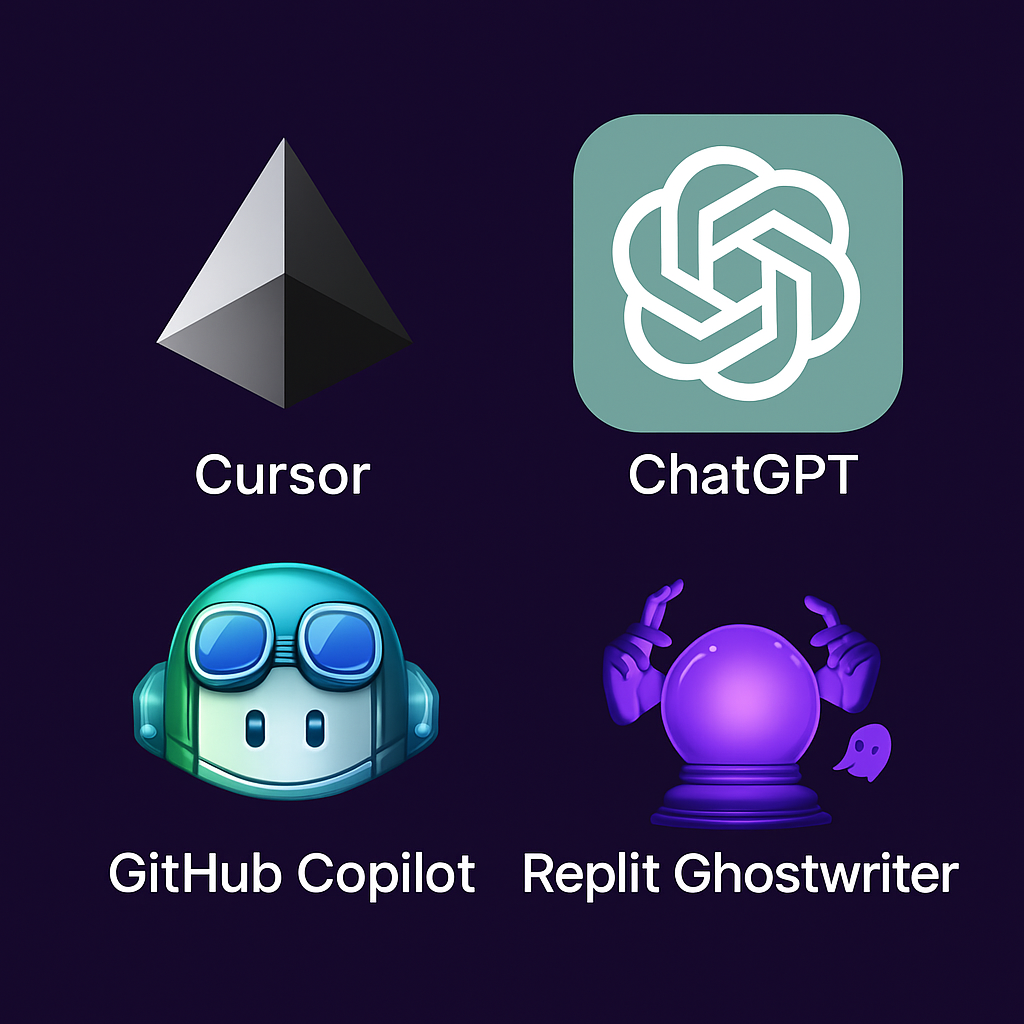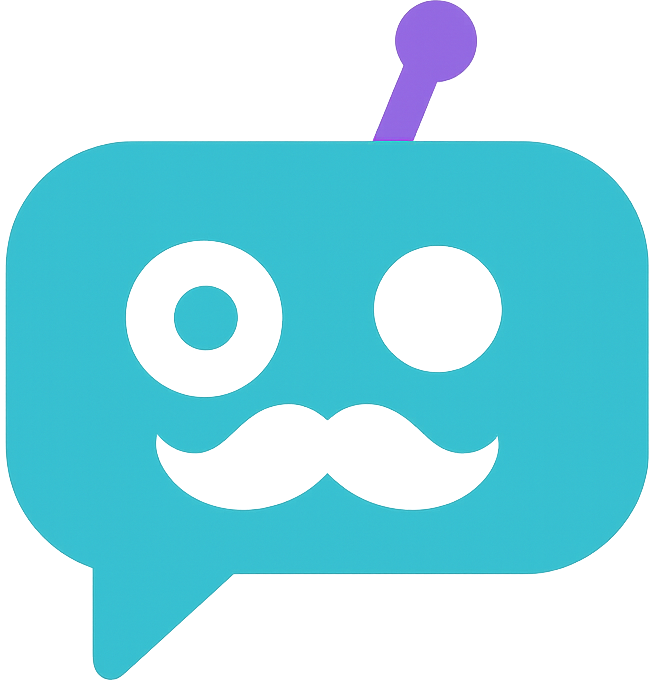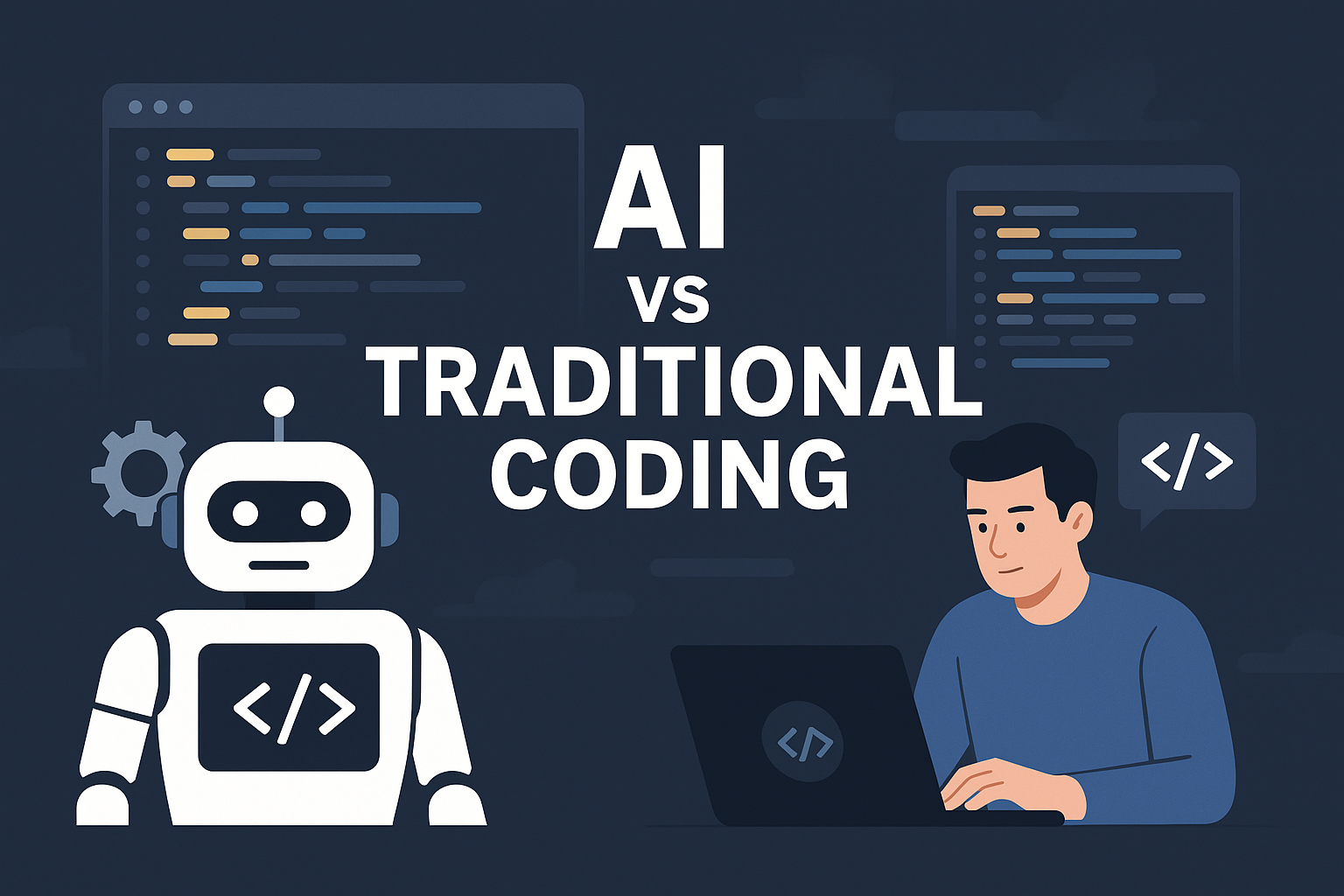Artificial Intelligence is no longer a buzzword confined to futuristic visions or sci-fi films. It’s here, transforming industries at a rapid pace. One of the most talked-about shifts is happening in software development, where AI coding assistants like Cursor, ChatGPT, GitHub Copilot, and Replit Ghostwriter are becoming essential tools for developers. These tools can generate code, suggest improvements, automate repetitive tasks, and even build entire applications with just a prompt.
This evolution raises an important question: Will developers still be needed in a world where AI can write code?
The rise of AI in programming is undeniable. Developers, especially those in fast-paced environments, are already relying on AI-powered tools to boost productivity and reduce mental fatigue. But does this spell the end for traditional software development roles? Or are we witnessing the emergence of a new kind of developer?
Let’s explore how AI is shaping programming today, where human skills still shine, what limitations AI brings, and what the future might look like.
Top AI Coding Tools Shaping the Industry

Before diving deeper, let’s take a quick look at the major AI tools transforming how developers work:
- Cursor: A coding environment powered by AI that offers smart suggestions and context-aware code generation directly in your editor. It enhances productivity by understanding your project’s structure.
- ChatGPT: More than just a chatbot, ChatGPT can generate code, debug issues, explain complex concepts, and assist with documentation through natural language interactions.
- GitHub Copilot: Built on OpenAI’s Codex, Copilot integrates with popular editors like VS Code to suggest full lines or blocks of code in real time, based on comments and previous code patterns.
- Replit Ghostwriter: Replit’s AI assistant is designed for collaborative, in-browser development. It helps you build projects faster by suggesting code, fixing bugs, and answering questions.
These tools are becoming essential companions for developers, providing real-time assistance and dramatically reducing the time spent on repetitive or boilerplate tasks.
The Current Role of AI in Programming
AI tools are no longer experimental. They are practical, powerful, and accessible. Platforms like GitHub Copilot have integrated seamlessly into everyday workflows, acting as a pair programmer that never sleeps. ChatGPT can explain complex algorithms, debug code, and even generate unit tests on command. Replit’s Ghostwriter and Cursor push this further by embedding AI directly into the development environment.
Here’s how AI is currently being used in programming:
- Code Generation: AI can write boilerplate code, create CRUD operations, and even draft components based on plain English instructions.
- Debugging Assistance: AI helps identify bugs and suggest fixes, sometimes even pinpointing logical errors in your code.
- Documentation and Comments: Writing documentation is tedious. AI can automatically generate docstrings and explanatory comments to speed things up.
- Automation of Repetitive Tasks: AI can automate simple, repetitive jobs like file conversions, data formatting, or writing tests.
- Learning and Onboarding: AI helps new developers understand unfamiliar codebases faster by answering natural language questions.
In essence, AI acts like a supercharged intern who knows the documentation of every language, library, and framework, and can respond instantly.
Strengths of Traditional Developers
Despite the growing role of AI, human developers remain irreplaceable in many aspects of software development. Programming is more than just writing lines of code. It is about solving problems, understanding requirements, and designing systems that are efficient, scalable, and maintainable.
Here are the unique strengths human developers bring:
- Problem Solving: Developers don’t just write code. They understand the “why” behind the code. They analyze trade-offs, handle edge cases, and adapt solutions to the broader context.
- System Design and Architecture: Building robust systems requires a deep understanding of software architecture, design patterns, and long-term maintainability. AI lacks this holistic vision.
- Creative Thinking: Innovation stems from curiosity, experimentation, and intuition. Developers often solve problems in unconventional ways that AI would not consider.
- Domain Knowledge: Developers bring business-specific knowledge that influences how software is built. This kind of contextual thinking is hard to replicate.
- Ethical Decision-Making: Developers must think about privacy, fairness, and user impact. AI tools don’t have ethical awareness or personal responsibility.
These strengths point to a broader truth: software development is a human-centered activity. Code is just one part of the puzzle.
Limitations of AI in Software Development
While AI coding tools are impressive, they are far from perfect. Understanding their limitations is essential to avoid blind dependence and potential pitfalls.
- Lack of Context: AI models do not fully understand the entire codebase or the broader project goals. Their suggestions might work in isolation but fail within the full application.
- Hallucinations: AI can sometimes generate incorrect or completely fabricated code. It might suggest APIs that don’t exist or logic that breaks silently.
- Security Risks: Generated code may contain vulnerabilities that aren’t immediately obvious, such as insecure handling of user input or hardcoded secrets.
- Inability to Reason Long-Term: AI doesn’t think about maintainability, tech debt, or how one piece of code will impact future features.
- Dependence on Prompts: The quality of AI output is tied directly to the quality of the input. Bad prompts lead to bad code.
In short, while AI can assist with tactical implementation, it struggles with strategic thinking and long-term software planning.
The Future Landscape
Looking ahead, the relationship between AI and developers is not one of replacement, but of transformation. Rather than eliminating jobs, AI is reshaping them.
Possible Scenarios:
- Human-AI Collaboration Becomes the Norm
Just as calculators didn’t eliminate math or IDEs didn’t eliminate coding skills, AI tools will become standard extensions of every developer’s toolkit. Developers will focus more on problem-solving and less on syntax. - Rise of AI-First Development
Some companies may build products using mostly AI-assisted coding. These companies will need “AI orchestrators” ,developers who are good at guiding AI, verifying its output, and connecting the pieces. - Reduced Need for Entry-Level Coders
Junior developers who typically start with simple tasks might find those tasks already handled by AI. This could lead to fewer beginner roles, but also encourage new forms of training that focus on higher-level thinking earlier. - New Roles and Specializations
As AI becomes more common, new job roles will emerge , prompt engineers, AI tool trainers, and hybrid designers who combine UI/UX with AI behaviors. - Faster Prototyping, More Startups
AI will lower the barrier to entry for creating apps, meaning more solo founders, more experiments, and possibly more innovation.
The future isn’t binary. Developers won’t be fully replaced or untouched. It will be a blend, where the role of a “coder” evolves into something broader, more creative, and more strategic.
Conclusion: Will Developers Still Be Needed?
Yes, developers will still be needed ,but not in the same way.
AI is changing the landscape of software development, no doubt. It’s taking over repetitive tasks, helping generate code, and making programming more accessible. But it still lacks context, judgment, and the ability to reason about complex systems or ethical trade-offs.
The best results will come when humans and AI work together. Developers who embrace AI as a collaborator ,not a competitor ,will be the ones who thrive. They will write better code, faster. They will solve bigger problems. They will focus more on design, architecture, and impact.
So if you’re a developer, don’t worry about being replaced. Focus on being irreplaceable. Learn how to think, design, and collaborate in ways that AI cannot. The future of coding is not AI vs humans,it’s AI with humans.
Stay curious, stay sharp, and keep building.


Leave a Reply